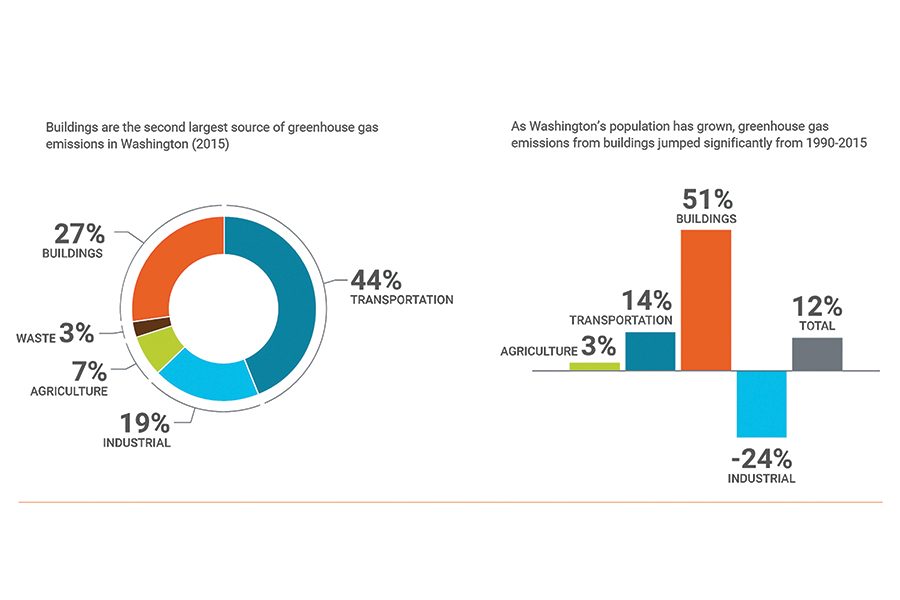
Home » State says 500+ buildings in Tri-Cities subject to new clean building standards
State says 500+ buildings in Tri-Cities subject to new clean building standards

August 11, 2021
The state Department of Commerce has identified 351 parcels in Benton County and 177 in Franklin County that may be subject to the state’s clean building law.
The state’s new commercial clean buildings standard is one of several pillars of Gov. Jay Inslee’s 2019 climate package and is the first of its kind in the nation.
“This is a big step forward implementing the nation’s strongest clean buildings law. Washington’s 2021 state energy strategy identifies energy efficiency in buildings as an essential strategy for transforming and decarbonizing our energy future,” said Commerce Director Lisa Brown in a news release. “Investing in energy efficiency will strengthen local communities and help businesses lower energy costs.”
The buildings sector is the state’s second-biggest carbon polluter behind transportation, the agency said. That’s why investing in making buildings more energy efficient is a cost-efficient way to address the problem and reduce greenhouse gas emissions, it said.
Commerce has identified parcels around the state containing a building, or a portion of a building, which may be subject to the standard. To see the list, go to bit.ly/ParcelList.
Building owners should receive a letter notifying them that their building is subject to the standard and providing additional direction on next steps.
In the meantime, building owners are encouraged to become familiar with the new requirements and resources available. They also can contact the Department of Commerce to schedule a training or information session.
Owners also may be eligible for the state’s early adopter incentive program, which offers performance-based payments to building owners who get ahead start on compliance or who choose to make qualifying improvements to their buildings.
For example, large multifamily residential buildings are exempt from mandatory requirements of the standard but are eligible to participate in the incentive program.
Incentive funds are limited to $75 million.
Building owners must apply to participate, and incentives will be offered depending on eligibility until all available funds are distributed.
A portion of the incentive funds will be prioritized for projects in communities that are most likely to be underserved, including rural areas and multifamily affordable housing buildings.
“There are multiple ways building owners can meet these new standards and we’re committed to helping them succeed,” said Assistant Director Michael Furze in a new release. “For example, buildings may need energy efficiency upgrades that will take years to complete. The early adopter incentive program provides a funding for building owners who need or want to start making improvements now.”
Commerce conducted 15 workshops and comment periods to establish the new clean commercial buildings standard and set state-specific targets that are 15% less than 2009-18 averages.
The targets are based on data showing the average energy use for commercial buildings larger than 50,000 square feet as well as the downward trend in energy use resulting from new technology and maintenance or operation practices. Examples include the replacement cycle of lighting to LEDs and trends in building tuneups and operations.
Commerce may impose administrative penalties on building owners who fail to submit documentation demonstrating compliance. Failure to submit appropriate documentation by the scheduled reporting date will result in progressive penalties by legal notice.
The law goes into effect in 2026 for buildings more than 220,000 square feet.
Buildings 90,001-220,000 square feet begin reporting June 1, 2027. Buildings 50,000-90,000 square feet begin reporting June 1, 2028.
For qualifications and more information about the Early Adopter Incentive program, go to bit.ly/EarlAdopters.
Real Estate & Construction
KEYWORDS august 2021




